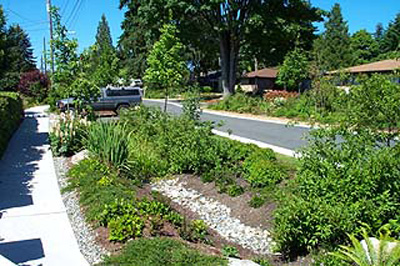With change afoot in Washington, D.C., and Springfield, the opportunity for MPC to help ensure a long-term sustainable water supply in Illinois has never been greater.
Just two months in, 2009 has already proven to be a
year marked by change and optimism.
In few areas of public policy is that more true than in the realm of
water supply planning, conservation and management.
The proposed American Recovery and
Reinvestment Plan currently includes provisions to increase federal
investment in the Clean Water and Drinking Water State Revolving
Funds, which could provide approximately $340 million to Illinois for
low-interest loans to local governments to improve sewer and water systems. At the same time, new Illinois Gov. Pat
Quinn has stated his administration will work to coordinate environmental
sustainability, government efficiency, fiscal responsibility, and economic
growth.

Illinois has begun the process of planning for a sustainable
water supply. A 2006 executive
order called for the creation of a statewide framework for regional water supply
planning, as well as the establishment of two pilot regional planning
groups. Those groups – the East Central Regional Water Supply Planning
Committee and Northeastern
Illinois Regional Water Supply Planning Group – have since studied the
hydrology of their respective regions, explored potential conservation
strategies to incorporate in final plans, and perhaps most importantly,
commissioned demand and supply studies to inform future decisions. Conservative estimates indicate 51
percent and 35.8 percent increases in water withdrawals in East Central and
Northeastern Illinois, respectively, between
2005 and 2050 (based on baseline conditions, omitting water used in power
production).
However, the end game remains unclear. More regional planning groups must be
established, funding and technical assistance from the state need to be
consistent, and statewide sustainability goals need to be established so that
regional plans can pursue them in contextually specific
ways.
As MPC
and Openlands prepare their third set of
policy recommendations to shape Illinois’ water future – following on Changing
Course in 2004 and Troubled
Waters in 2006 – project staff from both organizations met with members
of Quinn’s environmental team to recommend a series of action steps that will
move Illinois toward a sound water future.
These steps will form the backbone of the forthcoming recommendations
(expected in early May):
·
Dedicate sufficient funding from the General Revenue
Fund or user fees to support needed research, complete the statewide water
supply planning process and begin to implement the plans that have been created
at the regional level.
Water supply management is
an integral aspect of good governance.
Funding to support the Ill. State Water Survey, Ill. Dept. of Natural
Resources, and regional planning groups must be dependably provided on a
consistent annual basis.
·
Establish at least two new regional planning groups
in 2010, and two more in 2011.
In order to create a
statewide water supply plan – one that is informed and supported by stakeholders
– more regional planning efforts must get underway in the near future. The experiences of the two existing
groups will be highly instructive, and can be used to create a template for
future efforts.
·
Establish state goals for water conservation and
efficiency, consistent with the requirements of the Great Lakes Compact, for regional planning groups to meet in contextually
specific ways. State, regional and local efforts to meet Compact
requirements need to be coordinated in order to eliminate redundancy, confusion
and conflict. The conservation
requirement would pervade agricultural policies, pricing systems for public
water supplies, construction practices, open space and watershed protection,
urban design, and public education – but also guide regional planning and local
implementation.
·
Aim for comprehensive water use reporting by
2012. In Illinois, usage reporting is voluntary, which
means that data on water supply and demand is incomplete. Without current, comprehensive data, we
cannot accurately project future water availability or assess the efficacy of
conservation efforts.
·
Price water for conservation. Current water rates in many Illinois communities do
not reflect the true cost associated with providing water service. If rates
reflect all costs of providing safe drinking water – usage research, planning,
expanding water treatment plants, maintaining existing infrastructure,
chemicals, and labor – consumers would begin to adjust their usage
accordingly. The state should
create incentives to induce a shift to conservation pricing, including support
for systems that comprehensively deploy real-time water meters.
·
Reinvest in and rethink water
infrastructure. Much of Illinois’ water infrastructure is badly in
need of repair, modernization, or replacement. As Illinois plans its own capital spending and
use of the federal economic recovery package, investment in water-related
infrastructure should be a priority.
However, if sustainability
truly is the goal, then the definition of infrastructure also must include
metering and measurement systems, which can induce conservation, as well as
“green” infrastructure (i.e. permeable paving and bioswales), which often has a
competitive cost advantage over “grey” infrastructure (i.e. treatment plants and
stormwater drains).

MPC, working in partnership with Openlands, has been
a vocal and adamant supporter of water supply planning for many years, and is
eager to work with the State of Illinois on this and other issues. With some foresight and effort, 2009
will be the year that Illinois finally establishes a statewide
framework for regional water supply planning, and one large step toward a wiser,
wetter future.
If you have any
questions about MPC's water supply work, or would like to support future
efforts, please contact Josh
Ellis at jellis@metroplanning.org or (312)
863-6045.